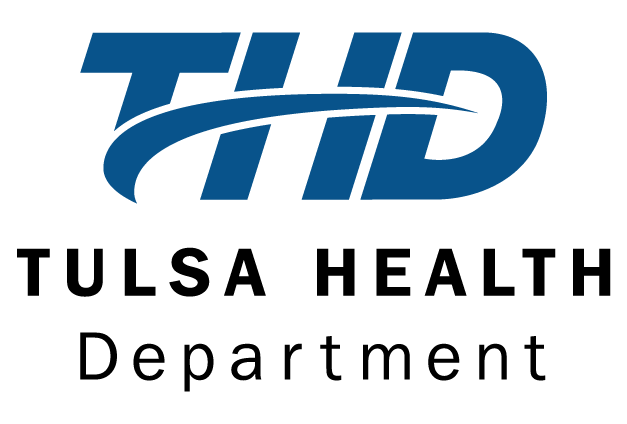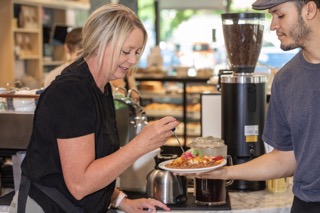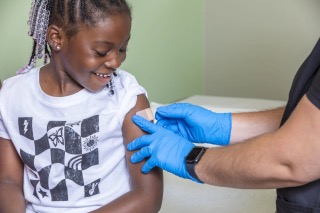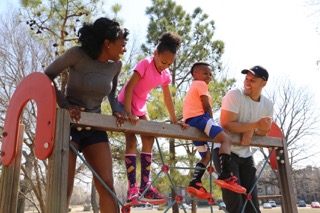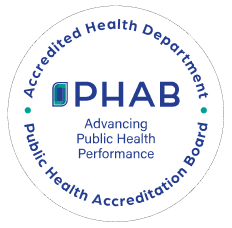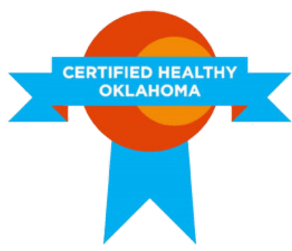The 4th of July is a day to celebrate Uncle Sam, enjoy the summer weather and spend time with family and friends. Independence Day during a global pandemic is also a time for enhanced health and safety precautions. Keep these public health precautions in mind as you plan your 4th of July celebration safely.
Prevent fireworks injuries
Fireworks can cause death and injury, including burns, cuts, bruises, and foreign objects in your eyes.
Never allow young children to play with or ignite fireworks.
Always have an adult supervise fireworks activities.
Avoid buying fireworks packaged in brown paper, which often means they were made for professional displays and could be dangerous for consumers.
Make sure you and your family watch fireworks displays from a safe distance.
Call 911 immediately if someone is injured from fireworks.
Beat the heat
In hot temperatures your body may be unable to properly cool itself. This could lead to serious health problems.
Drink plenty of fluids, regardless of your activity level. Don’t wait until you’re thirsty to drink. Warning: If your doctor generally limits the amount of fluid you drink or has you on water pills, ask how much you should drink while the weather is hot.
Don’t drink liquids that contain alcohol or large amounts of sugar–these actually cause you to lose more body fluid. Also, avoid very cold drinks, because they can cause stomach cramps.
Protect yourself from the sun by wearing a wide-brimmed hat and sunglasses. Wear lightweight, light-colored, loose-fitting clothing.
Put on sunscreen of SPF 15 or higher – the most effective products say “broad spectrum” or “UVA/UVB protection” on their labels.
Stay in the shade!
Don’t let a stomach bug slow you down
The summer months typically see a spike in reports of foodborne illness. Keep the food safe at your 4th of July picnic or BBQ.
Use separate plates and utensils for raw and cooked meat and poultry and ready to eat foods, like raw fruits and vegetables.
Use a food thermometer to make sure meat and poultry are cooked hot enough to kill harmful germs.
Don’t leave food at room temperature for longer than two hours – one hour if the outside temperature is over 90 degrees. Keep perishable food in an insulated cooler packed with ice or ice packs.
Prepare to take the plunge
Drowning is responsible for more deaths among children 1 to 4 years old than any other cause except birth defects.
Designate a responsible adult to watch all children swimming or playing in or around water. Drowning occurs quickly and quietly, so adults should not be involved in any other distracting activity while supervising children.
Teach kids to swim. Formal swimming lessons can protect young children from drowning.
Always swim with a buddy. Whenever possible choose swimming sites that have lifeguards.
Avoid drinking alcohol before or during swimming, boating, or water skiing. Do not drink alcohol while supervising children.
Know the local weather conditions and forecast before swimming or boating. Strong winds and thunderstorms with lightning strikes are dangerous.
Fight the bite
Bugs, including mosquitoes, ticks, and some flies can spread diseases like Zika, dengue, and Lyme disease.
Use EPA-registered insect repellents that contain at least 20% DEET for protection against mosquitoes, ticks, and other bugs.
Wear long-sleeved shirts, long pants, socks, and a hat. Tuck your shirt into your pants, and tuck your pants into your socks for maximum protection.
Check yourself and your children for ticks. Ticks are easy to remove.
Hosting gatherings or cook-outs
Remind guests to stay home if they are sick
Remind invited guests to stay home if they have been exposed to COVID-19 in the last 14 days or are showing COVID-19 symptoms.
Anyone who has had close contact with a person who has COVID-19 should also stay home and monitor their health. Invited guests who live with those at higher risk should also consider the potential risk to their loved ones.
Consider keeping a list of guests who attended for potential future contract tracing needs.
Encourage social distancing
Host your gathering outdoors, when possible. If this is not feasible, make sure the room or space is well-ventilated (for example, open a window).
Arrange tables and chairs to allow for social distancing. People from the same household can be in groups together and don’t need to be 6 feet apart – just 6 feet away from other families.
If planning activities for adults and/or kids, consider those where social distancing can be maintained, like sidewalk chalk art or frisbee.
When guests arrive, minimize gestures that promote close contact. For example, don’t shake hands, do elbow bumps, or give hugs. Instead wave and verbally greet them.
Wear cloth face coverings
Wear cloth face coverings when less than 6 feet apart from people or indoors.
Consider providing face coverings for guests or asking them to bring their own.
Clean hands often
Consider providing hand sanitizer in addition to clearly marked hand washing areas.
Wash your hands for at least 20 seconds when entering and exiting social gatherings. If soap and water are not readily available, use a hand sanitizer that contains at least 60% alcohol. Cover all surfaces of your hands and rub them together until they feel dry.
Make sure there is adequate soap or hand sanitizer containing at least 60% alcohol available in the restrooms and encourage guests not to form a line at the door. Consider also providing cleaning supplies that allow guests to wipe down surfaces before they leave.
Remind guests to wash their hands before serving or eating food.
Use single-use hand towels or paper towels for drying hands so guests do not share a towel.
Limit the number of people handling or serving food
Encourage guests to bring their own food and drinks.
Limit people going in and out of the areas where food is being prepared or handled, such as in the kitchen or around the grill, if possible.
If serving any food, consider identifying one person to serve all food so that multiple people are not handling the serving utensils.
Use single-use options or identify one person to serve sharable items, like salad dressings, food containers, and condiments, so that multiple people are not handling the items.
Limit contact with commonly touched surfaces or shared items
Use touchless garbage cans or pails.
Use gloves when removing garbage bags or handling and disposing of trash. Wash hands after removing gloves.
Clean and disinfect commonly touched surfaces and any shared items between use when feasible.
If you choose to use any shared items that are reusable (e.g., seating covers, tablecloths, linen napkins), wash, clean, and sanitize them after the event.
